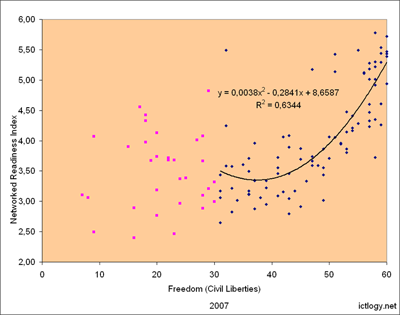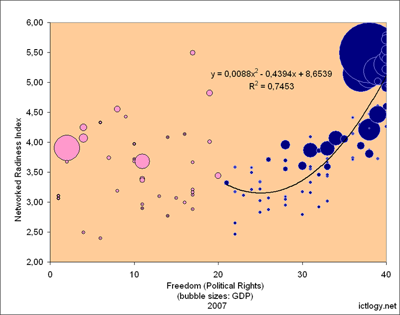By Ismael Peña-López (@ictlogist), 09 May 2008
Main categories: Digital Literacy, e-Government, e-Administration, Politics, e-Readiness, Meetings, Participation, Engagement, Use, Activism
Other tags: Activism, blog, e-Government, education, Engagement, icities, jaume morego, julio meneses, Participation, Engagement, Use, Activism, ricard ruiz de querol, Use
4 Comments »
iCities is a Conference about Blogs, e-Government and Digital Participation.
Here come my notes for session I (part I).
Digital Citizens vs. Analogue Institutions
Ismael Peña-López
These are the materials I’m using at the iCities: Primeras Jornadas sobre Blogs, e-Government y Participación Digital [First Conference on Blogs, e-Government and Digital Participation], for the opening speech, in which I take part on Friday 9th May 2008.
Slides:
Universal McCann (2008).
Wave 3. New York: Universal McCann.
Acknowledgements
Update:Now that the conference is over, hearty and warmest thanks to
Pablo Díaz and
César Calderón for making the conference happen and for having invited me.
Ricard Ruiz de Querol deserves my sincerest gratitude for his always challenging insights about the Information Society. Jaume Moregó also pushed me to a project that payed back with good reflections. A good buch of this conference was inspired by them both, thank you. And also thanks to Julio Meneses for his lightning fast and valuable help with some graphic materials.
iCities 2008, Blogs, e-Government and Digital Participation (2008)
By Ismael Peña-López (@ictlogist), 07 May 2008
Main categories: e-Government, e-Administration, Politics, ICT4D, Meetings, Participation, Engagement, Use, Activism
Other tags: blog, helen milner, icities, web 2.0
No Comments »
There is a constant buzz on the importance of blogs as both proxies for the freedom of speech in one country and also as the paradigmatic tool for citizen participation, activism, advocacy and so on. But, what’s the reality behind this (strong) statement? Is it just the mad dream of an enlightened digerati, or is there some truth in blogs politically empowering the citizenry?
These are some of the questions behind iCities: Primeras Jornadas sobre Blogs, e-Government y Participación Digital [First Conference on Blogs, e-Government and Digital Participation]. Preparing the opening speech, which I impart on Friday 9th May 2008, I found some interesting things.
Even if data have to be taken with maximum care and minimum work was performed on the statistical apparatus, it does seem that there is a relationship between the amount of existing liberties in one country and its degree of development of the Information Society. Data come from the Freedom Aggregate Scores published at the Freedom in the World 2007, and the Networked Readiness Index published at the Global Information Technology Report 2007-2008: Fostering Innovation through Networked Readiness.
First chart compares the Networked Readiness Index (Y) with the Civil Liberties score (X). We can see that, beyond a threshold (here arbitrary set at the 50% of the total score), there is a relationship where the more rights, the more developed an Information Society is. Or the contrary: as no causality has been analyzed, we can also state that the more digitally advanced a society is, the freer. Anyhow, these are two variables that do go hand in hand.
But the next chart is even more interesting. This second chart compares the Networked Readiness Index (Y) with the Political Rights score (X) — again split in two at the 50% of the total score (democratic vs. not democratic). First thing we can see is that the relationship tightens: political freedom seems to be really important for e-readiness, for the development of the Information Society. Surprising? Not really: once the main infrastructures are set, e-Readiness strongly depends, for it to increase, on market liberalization, e-Government, content, communication channels, users… If you want these variables to increase, it looks plausible that freedom and participation is a must.
But we have added, as the buble size, the Gross Domestic Product (the bigger the bubble, the bigger the country’s GDP). This gives us, at least, two more hints:
- First one: beyond a threshold, you’re e-readiness won’t grow despite the power of your economy. The two big pink bubbles on the left are China (far left) and Russia. Their GDP is quite big (let’s not forget that there are only +120 countries plotted in this chart: most of the remaining +100 countries/territories just “don’t count” as per e-readiness matters because they are too poor to). But both Russia and China seem to have topped a crystal ceiling on e-Readiness development. Could it be because of the evident lack of liberties in these countries?
- Second one: in the Information Society, the international environment matters. Malaysia and Singapore are the two pink dots on the upper part of the chart, almost in the horizontal middle. The first thing to say is that, even if they are but democratic, they are nor the typical corrupted and/or tyrannic system. On the other hand, they are surrounded by ICT early adopters, which is something Helen V. Milner has already pointed as being very important to set an Information Society agenda in her work The Global Spread of the Internet: The Role of International Diffusion Pressures in Technology Adoption. Nevertheless, these are two interesting exceptions that surely need deeper analysis.
Summing up
- Are blogs a good measure of (a) the freedom in a country and (b) the degree of development of a country’s Information Society?. Maybe. What seems clear — though more and better analysis should be performed — is that these are social variables that go together.
- Are non-democratic regimes to survive the Information Society? Who knows. But, again, it seems clear that there is a trade off between authoritarianism and digital development. The rulers — and their citizenry — will perhaps have to choose between democracy and digital development or keeping the power. But power cannot be kept at all costs and against all odds. How much will the e-excluded tolerate losing the digital train towards development?



